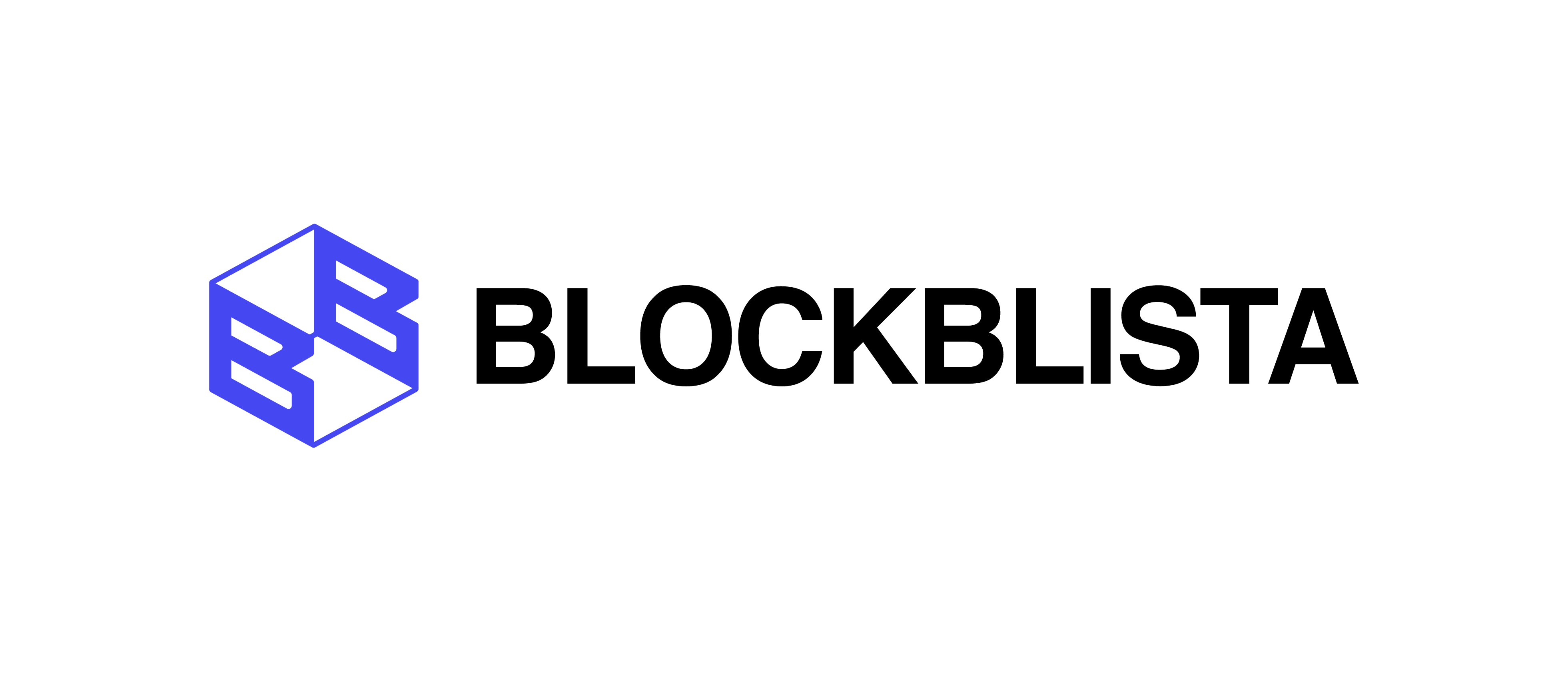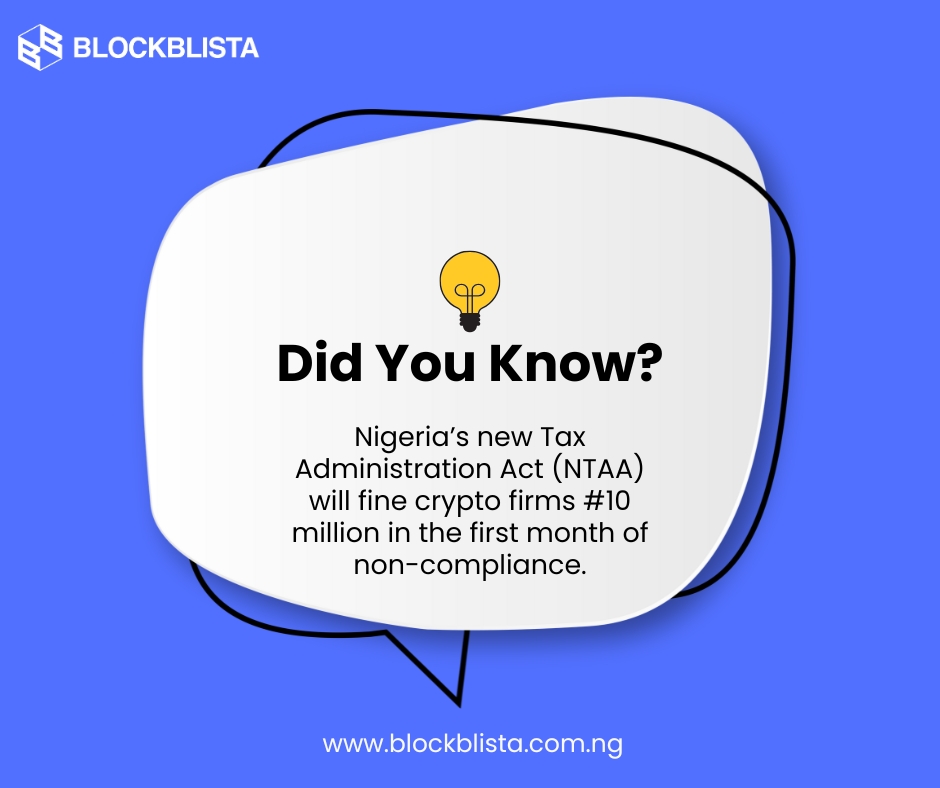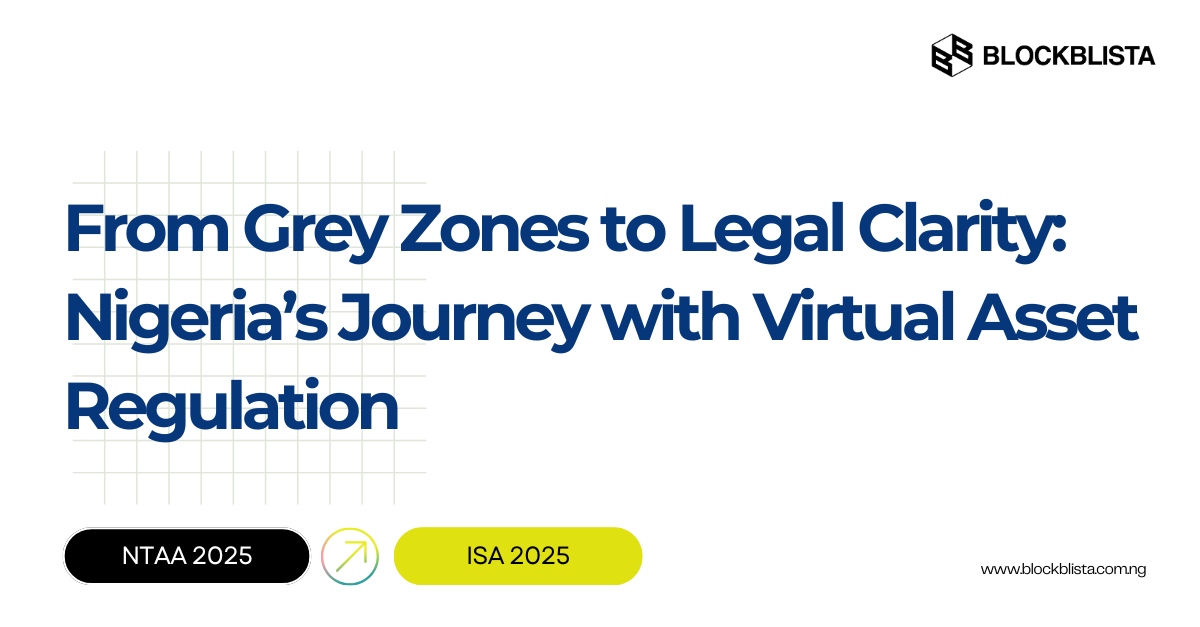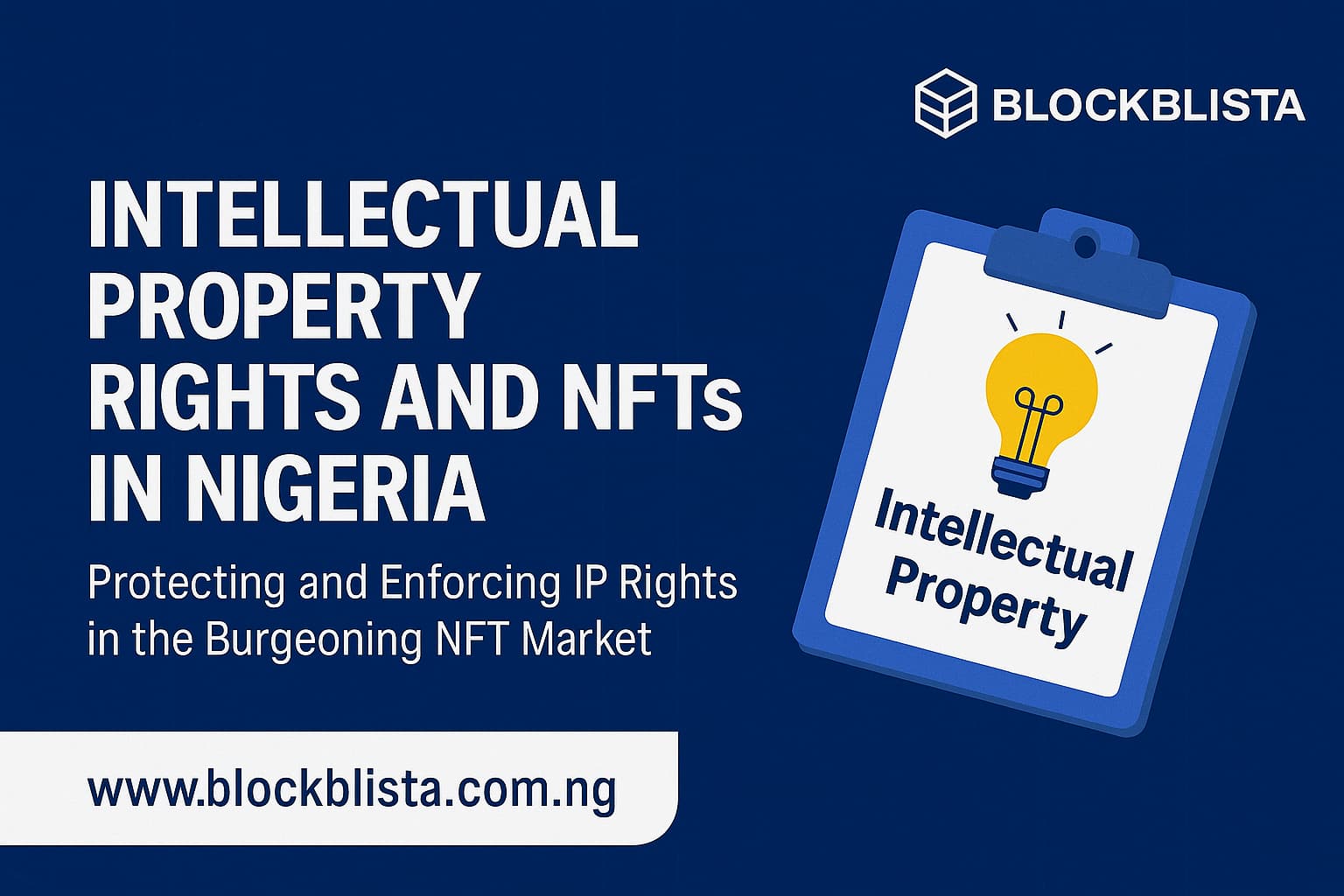From January 2026, Nigeria’s Tax Administration Act (NTAA) will take effect, and for the crypto and Web3 space, the landscape will shift in profound ways. Virtual Asset Service Providers (VASPs) that default on their tax obligations will face a ₦10 million penalty in the first month of non-compliance, ₦1 million for every subsequent month, and the possibility of suspension or revocation of licences by the Securities and Exchange Commission (SEC).
The Act introduces a new standard of enforcement. Beyond paying taxes, VASPs are now expected to operate with the rigour of traditional financial institutions. They must report suspicious or large transactions, maintain accurate Know-Your-Customer (KYC) data, and keep detailed records for a minimum of seven years. This goes hand in hand with obligations under anti-money laundering frameworks and signals a more coordinated regulatory approach between tax authorities, the SEC, and the Nigerian Financial Intelligence Unit (NFIU).
The implications are wide-ranging. Smaller operators may struggle with the cost of compliance infrastructure, from KYC systems to recordkeeping technology. Larger exchanges must consider how to align their Nigerian operations with global compliance strategies, especially as tax reporting becomes harmonised with cross-border regulatory standards. For users, transaction costs may rise as operators pass on compliance expenses. For investors, however, a properly regulated framework could reduce risk and unlock capital flows that were previously hesitant due to Nigeria’s regulatory uncertainty.
It is also significant that the NTAA reframes how crypto is perceived. For years, the industry was seen primarily as a threat, linked to tax evasion, naira volatility, and financial crime. By embedding crypto firmly within the tax and regulatory architecture, the government is now recognising it as a legitimate part of the financial system. This is both a challenge and an opportunity. Operators who treat compliance as a strategic advantage rather than a burden will be better placed to attract partners, access capital, and expand sustainably.
The months before 2026 offer a crucial window. This is the time to strengthen governance structures, integrate compliance tools, revisit shareholder and service agreements, and engage both tax and legal advisers. The NTAA is not a law to be managed reactively; it demands proactive planning and execution.
___________________
At Blockblista, our commitment is to help you stay ahead of these changes with clarity and confidence. This is not the time to wait and see. It is the time to act.
Contact us today: blockblistaadvisory@gmail.com



